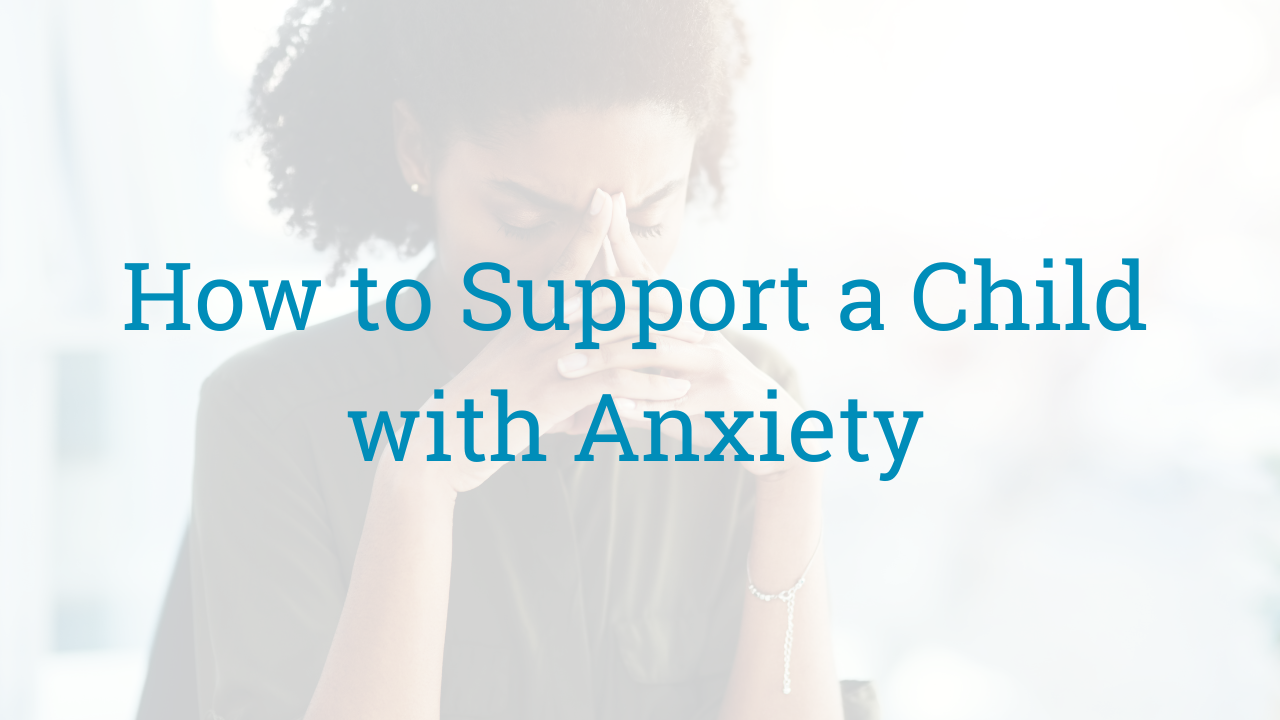
How to Support a Child Recently Diagnosed with Anxiety
When a child is diagnosed with anxiety, it can be a challenging and emotional time for both the child and their family. Understanding how to support them effectively can make a significant difference in helping them navigate their feelings and manage their anxiety.
Here are some key steps to support a child with an anxiety diagnosis:
1. Educate Yourself and Your Child
The first step in supporting your child is to educate yourself about anxiety. Understanding the condition helps reduce any fears or misconceptions, both for you and your child. Sit down with your child and explain anxiety in an age-appropriate way, using simple terms. Let them know that feeling anxious is a normal part of life and that they are not alone.
2. Create a Supportive Environment
Children with anxiety often feel overwhelmed and misunderstood. It’s important to create a safe and supportive environment at home where your child feels comfortable expressing their feelings without judgment. Encourage open communication, listen actively, and let them know that it’s okay to have anxious feelings.
3. Establish Routine and Predictability
Anxiety thrives in uncertainty. One of the most helpful things you can do is establish a consistent daily routine. Having a clear schedule for school, meals, homework, and bedtime can help your child feel more secure and in control of their environment. Routines can ease anxiety by reducing the unknowns.
4. Practice Coping Strategies Together
Teach your child coping strategies to manage their anxiety. Breathing exercises, mindfulness techniques, and progressive muscle relaxation are all effective tools. Practice these strategies together so your child can learn to use them in moments of anxiety. Over time, these tools can help them feel more in control of their emotions.
5. Encourage Healthy Habits
Physical health is deeply connected to mental well-being. Encourage your child to engage in regular physical activity, maintain a balanced diet, and get enough sleep. A healthy body can help regulate the nervous system and reduce the intensity of anxiety.
6. Seek Professional Support
While family support is crucial, working with a mental health professional can provide your child with additional tools to manage their anxiety. Here at Next Step 4 Mental Health, a mental health professional trained in child anxiety can guide your child in understanding their triggers and developing healthier thought patterns.
Cognitive-behavioral therapy (CBT) is a proven method for treating anxiety in children and can make a huge difference.
7. Be Patient and Understanding
Supporting a child with anxiety takes time and patience. Progress may be slow, and there may be setbacks, but it’s important to celebrate small victories along the way. Encourage your child to take things one step at a time, and reassure them that it’s okay to seek help when they need it.
At Next Step 4 Mental Health, we understand that each child’s experience with anxiety is unique, and we are here to help both children and families navigate this challenging journey.
If you’re looking for additional support or guidance, reach out to us today. Together, we can help your child build resilience, learn coping skills, and thrive despite anxiety.
Learn More
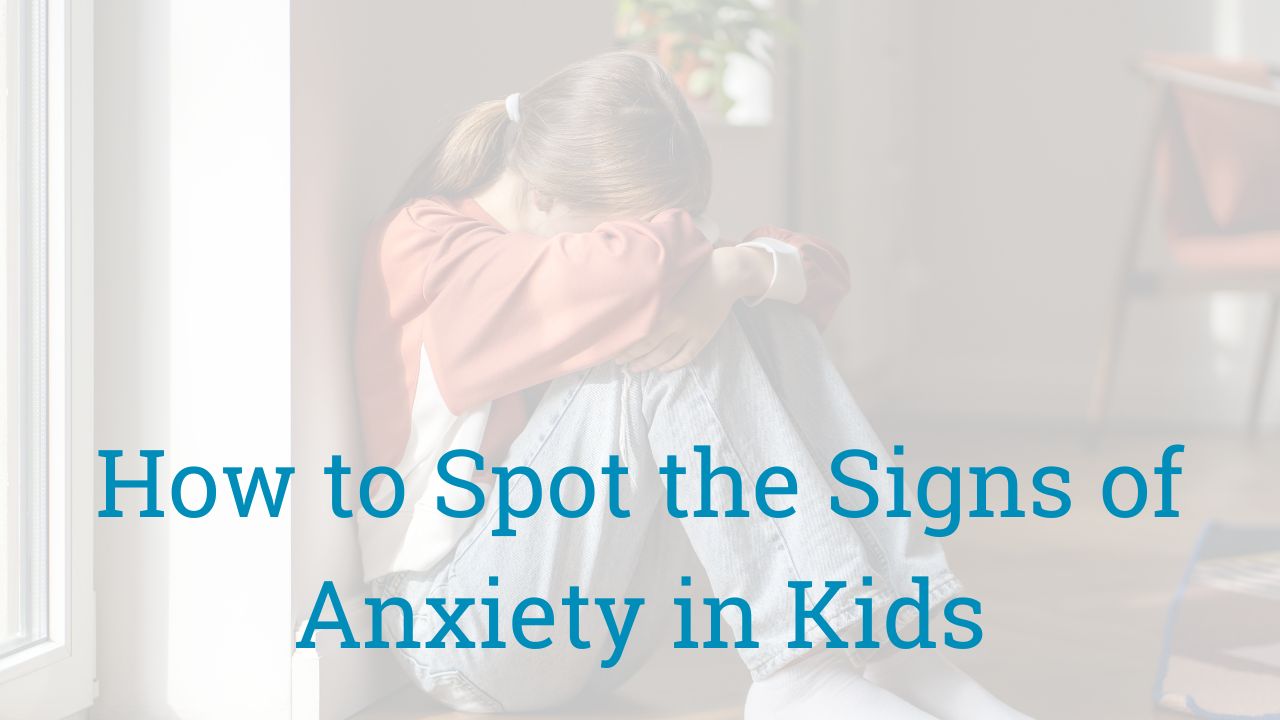
How to Spot the Signs of Anxiety in Kids
Anxiety is a common challenge among children, and it can often go unnoticed as kids may struggle to express their feelings. As a parent or caregiver, it’s important to know the signs so you can help your child cope with anxious feelings.
Here are some key signs of anxiety in kids to watch for:
1. Excessive Worry
Children with anxiety often worry excessively about everyday situations. They might express fear about going to school, meeting new people, or participating in activities they used to enjoy. This worry may seem disproportionate to the situation, which leads them to focus on worst-case scenarios.
2. Physical Symptoms
Anxiety often manifests physically. Your child may complain of stomachaches, headaches, or other unexplained pains, particularly before stressful events like school or social outings. They may also experience rapid breathing, dizziness, or fatigue when anxious.
3. Avoidance Behaviors
Kids who are anxious may avoid certain activities, people, or places that trigger their anxiety. This could include refusing to go to school, avoiding social interactions, or expressing fear about new experiences. These avoidance behaviors can sometimes interfere with their everyday routines.
4. Restlessness and Trouble Sleeping
Restlessness, fidgeting, or being unable to sit still can be signs of anxiety. Additionally, anxiety can disrupt your child’s sleep, causing nightmares, difficulty falling asleep, or frequent waking during the night.
Read this blog to learn how your lighting can impact your sleep.
5. Irritability and Mood Swings
Children with anxiety may become irritable or easily frustrated. Mood swings, especially in situations that would not normally be stressful, are another common sign.
How to Help Your Child
If you notice any of these signs in your child, it’s important to take action. Encouraging open conversations, validating their feelings, and teaching relaxation techniques can help. If the anxiety persists or affects their daily life, reaching out to a mental health professional can provide the support and tools needed to manage their anxiety effectively.
How Dr. Sofeia Aslam at Next Step 4 Mental Health Can Help
 Dr. Sofeia Aslam specializes in working with children and adolescents and offers a compassionate and effective approach to treating anxiety. Her expertise in child and adolescent psychiatry makes her the right fit for helping children navigate their anxiety and regain a sense of peace and confidence.
Dr. Sofeia Aslam specializes in working with children and adolescents and offers a compassionate and effective approach to treating anxiety. Her expertise in child and adolescent psychiatry makes her the right fit for helping children navigate their anxiety and regain a sense of peace and confidence.
With Dr. Aslam’s guidance, your child can learn coping strategies, develop emotional resilience, and improve their overall mental well-being. If you’re noticing signs of anxiety in your child, Dr. Aslam is here to help.
Contact Next Step 4 Mental Health today to schedule an appointment and take the first step toward supporting your child’s mental health.
Learn More
Finding the Right Child Psychiatrist in Louisville, Kentucky
Parenting a child with mental health challenges can be both rewarding and demanding. Whether your child is grappling with anxiety, depression, or other mental health issues, witnessing their unique perspective on the world comes with its highs and lows. If you’re in search of a child psychiatrist in Louisville, the good news is that Louisville, Kentucky, boasts a strong community of child psychiatrists ready to assist.
Here are the essential tips you need for finding the right child psychiatrist in Louisville.
Mental Health Concerns Are Common…
According to the Centers for Disease Control and Prevention (CDC), anxiety problems, ADHD, and depression are the most commonly diagnosed mental disorders in children. Approximately 5.8 million children aged 3-17 years have anxiety, while another 2.7 million have depression.
Mental health challenges can affect both children and adults, presenting symptoms such as mood swings, changes in behavior, and difficulties in coping with daily life. Diagnosing and managing mental health conditions requires specialized knowledge and skills, making the role of child psychiatrists crucial.
Why Choose a Child Psychiatrist in Louisville, Kentucky?

Louisville is home to a growing number of child psychiatrists who specialize in diagnosing and treating mental health conditions such as anxiety and depression in children. Here are some key reasons why seeking their help is beneficial:
- Expertise: Child psychiatrists have extensive training in child and adolescent mental health. They understand the nuances of diagnosing and treating many conditions (and comorbid conditions), tailoring their approaches to each child’s unique needs.
- Comprehensive Evaluation: Child psychiatrists take a holistic approach to assess your child. They not only evaluate the symptoms your child currently has, but they also consider any co-occurring conditions, environmental factors, and family dynamics that may impact your child’s well-being.
- Medication Management: In some cases, medication may be part of your child’s treatment plan. Child psychiatrists are well-equipped to prescribe and manage medications, ensuring your child’s safety and effectiveness.
- Behavioral Interventions: Child psychiatrists can provide guidance on evidence-based behavioral interventions and strategies to help manage symptoms, both at home and in school.
- Support for Families: Managing a mental health diagnosis can be challenging for the whole family. Child psychiatrists in Louisville offer guidance, resources, and support to parents and caregivers, helping them understand and cope with their child’s condition. You can read more here:
- Collaborative Care: Child psychiatrists often work closely on our multidisciplinary team, such as psychologists, therapists, and ADHD coaches, to provide a comprehensive and coordinated treatment plan for your child. This means that everything you need is all under one roof.
Finding the Right Child Psychiatrist in Louisville, Kentucky
When searching for a child psychiatrist in Louisville, consider the following steps:
- Ask for Recommendations: Reach out to your pediatrician, school counselor, or support groups for recommendations. They may have valuable insights into trusted professionals in the area.
- Research Credentials: Ensure the psychiatrist is board-certified and has experience in child and adolescent psychiatry.
- Consultation: Schedule a consultation to meet with the psychiatrist, discuss your concerns, and evaluate their approach and compatibility with your child.
- Communication: Open and effective communication with the psychiatrist is key. You should feel comfortable discussing your child’s needs and asking questions.
Why NextStep4MentalHealth?
NextStep4MentalHealth is committed to providing comprehensive resources and support for families dealing with mental health challenges. We understand the importance of child psychiatrists in managing these conditions and aim to connect parents and caregivers with qualified professionals who can make a significant difference in their children’s lives.
Our team page offers a user-friendly interface that allows you to search for child psychiatrists in your area who specialize in various mental health issues. We believe that access to the right healthcare professionals is a critical step in the mental health management journey.
Raising a child with mental health challenges can be a rewarding journey with the right support system in place. In Louisville, Kentucky, you have access to a dedicated community of child psychiatrists who can provide expert guidance and assistance. Remember that you’re not alone in this journey, and with the help of a knowledgeable child psychiatrist, you can empower your child to thrive and reach their full potential. Don’t hesitate to seek the support your family needs to make the journey with mental health challenges a successful one.
Click here to schedule an appointment with us today to explore the benefits of multidisciplinary care here in Louisville, Kentucky.
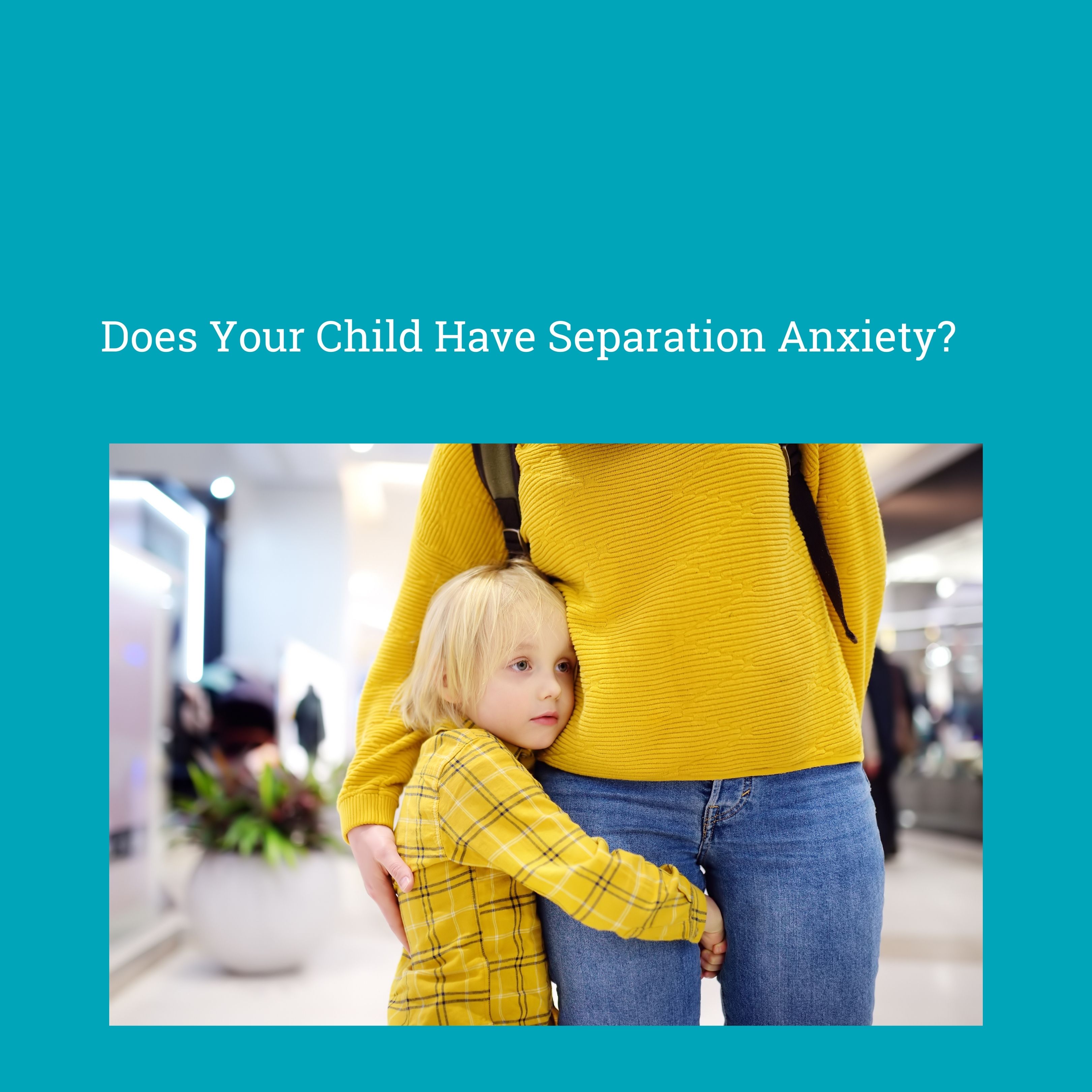
Does Your Child Have Separation Anxiety?
Separation anxiety tends to appear in infants around the age of 6-10 months. This is around the age when babies start to be more aware of their surroundings, and that includes when their parents are present — or not. Most toddlers outgrow this, but for some children with anxiety, separation anxiety can continue on well into the elementary school years.
In this blog, we explore the signs of separation anxiety and tips for helping your child feel better.
Signs Your Child Is Dealing with Separation Anxiety
![]()
![]() According to the DSM–IV–TR, separation anxiety is defined as:
According to the DSM–IV–TR, separation anxiety is defined as:
“An anxiety disorder occurring in childhood or adolescence that is characterized by developmentally inappropriate, persistent, and excessive anxiety about separation from the home or from major attachment figures. Other features may include marked anticipatory anxiety over upcoming separation and persistent and excessive worry about harm coming to attachment figures or about major events that might lead to separation from them (e.g., getting lost).”
Red flags of separation anxiety in kids include:
- Refusing to go to school
- Fear of being alone
- Fear of going to bed alone (without you)
- Nightmares
- Physical symptoms, including vomiting, headaches, nausea, stomach pain)
In addition, the DSM–5 also notes that the symptoms must be present for at least 4 weeks in children before a diagnosis can be reached. Adults can also be diagnosed with separation anxiety, but their symptoms must be present for at least 6 months.
Top Tips on How to Ease Your Child’s Separation Anxiety
 Use transitional objects
Use transitional objects
Transitional items help your child feel safe because they are a symbol of you. Your child connects the object to you and can feel reassurance. Examples of transitional objects include:
- A locket with a picture of you or your family (certain sellers on Etsy can also engrave special messages on lockets)
- Favorite blanket (spritzed with calming essential oils for extra calm vibes)
- A stuffed toy (with a recording of your voice)
Older children may not like a soft blanket or stuffed toy, but hand-written notes, a shared sweatshirt, or a locket can be beneficial for older children.
Acknowledge your child’s fear but stay positive
It’s good to acknowledge your child’s fears, but it’s equally important to continue to talk in a positive, calm manner. If your child senses that you are worried/fearful, it can add to his or her fears. Children easily pick up your own emotions, and it can impact their reactions too. Let your child know what will happen when you are gone, whether that’s an out-of-town work trip, a regular day at the office, or a quick trip to the grocery store.
Create a short and sweet goodbye ritual
Whether you’re dropping off your child at daycare, school, or the sitter’s house, it’s important to say goodbye. Skipping out without a proper goodbye can compound your child’s fears. That being said, goodbyes that very long can also prolong the transition and the lingering anxiety.
The best solution is a short and sweet goodbye. Examples include:
- A special handshake
- Butterfly kisses
- A hug and a special phrase (example: I love to the moon and back)
The Bottom Line
While some anxiety is normal when saying goodbye, untreated separation anxiety (or another type of anxiety disorder) can impact your child’s ability to function at home or school. If you spot the signs of age-inappropriate clinginess, tantrums, withdrawal from family or friends, preoccupation with intense guilt, refusal to go to school, excessive fear of leaving the house, or stomach pains/nausea, your child might benefit from an anxiety evaluation.
The good news is that separation anxiety, like all anxiety disorders, can be treated. Common treatments for anxiety include talk therapy, play therapy, counseling for the family, and in some cases, medication. Your therapist can also recommend the right lifestyle changes (such as changing up your goodbye ritual or making a locket) that can help your child.
NextStep2MentalHealth provides adolescent (and adult) mental health care, and our multidisciplinary team is dedicated to helping parents and their children with their mental health needs. Call us for an appointment or simply use our online scheduling tool.
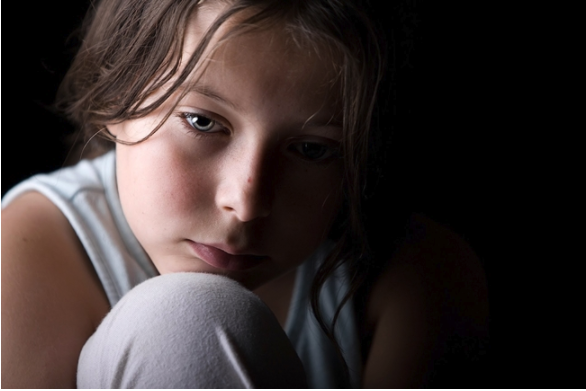
Depression in Children and Adolescents
Children and adolescents be affected by depression. It is less commonly diagnosed than with adults, it is important to recognize the signs and symptoms.
Learn More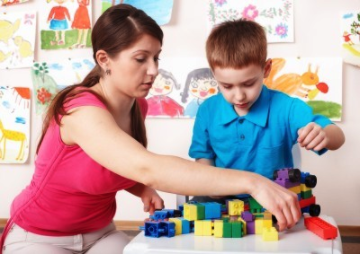
Choosing a medical professional to evaluate for ADHD?
It is very important that treatment options be discussed with a professional who is well informed about the significant, life-long consequences of…
Learn More